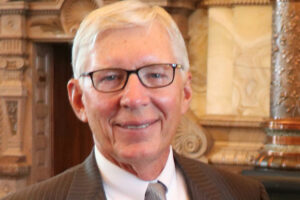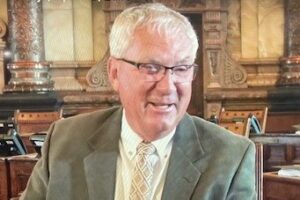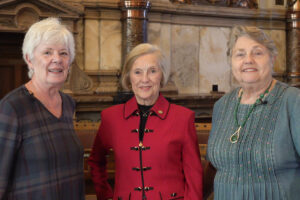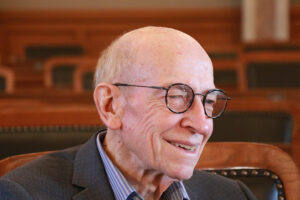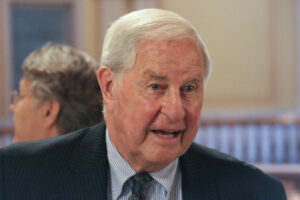Interview of Dave Kerr, August 23, 2019
Interviewed by Dale Goter
In a 2019 oral history interview Dave Kerr recalls nearly 20 years in the Kansas Senate including his terms as Chair of the Senate Ways and Means Committee and President of the Senate. His tenure in the senate spanned the period when state resources were directed toward economic development, an effort he thought was much needed. Kerr also recalls the revamping of the public education funding formula in 1992 and reorganization of governance and oversight of postsecondary education. He observes that key characteristics of a leader are willingness to listen to various points of view and endure the Show More"slings and arrows" of leadership. Show Less

